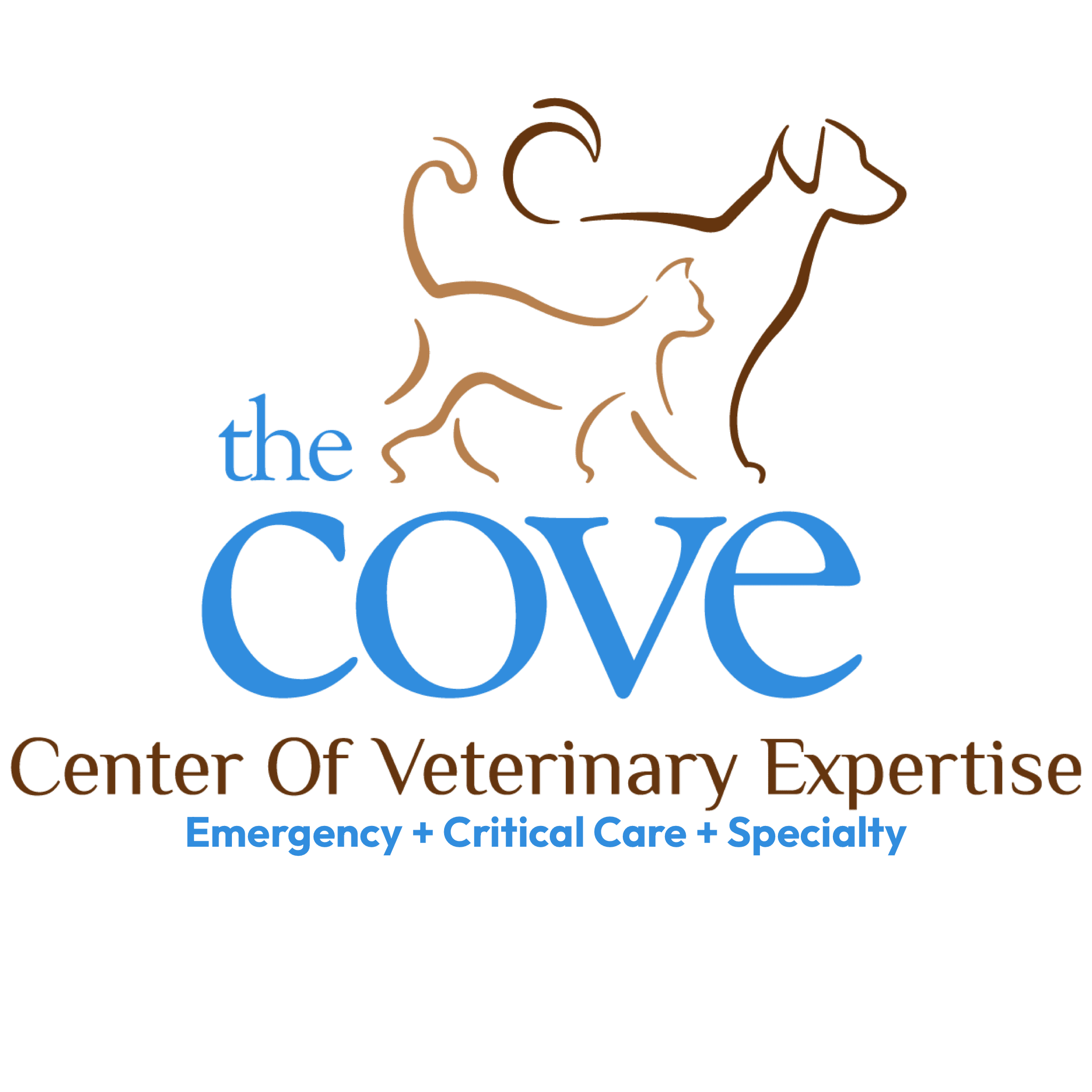No Bones About It: Poultry Bones and Pets
As we enter the most festive time of the year, The COVE wants to ensure the season stays enjoyable for pets and pet owners alike. The holidays are fraught with the unique hazards of holiday feasts, and some of these toxic or dangerous items can easily land your pet in the pet emergency room, in emergency surgery, or worse.
One of the hazards hotly debated on the internet is poultry bones. Many internet “experts” tout the benefits of giving your dog bones. While everyone has the best intentions, some of the advice we find isn’t accurate. Knowing the ins and outs of keeping your pets safe might be the greatest gift of all this holiday season.
Should Dogs Eat Poultry Bones?
Although dogs love to chew, and “throwing them a bone” may seem natural, bones can harm your dog in many ways.
Here are the top reasons to resist giving your pets poultry bones around the holidays or any time of the year.
Mouth, throat and tongue injury
Bird bones are hollow to allow flight, so poultry bones, in particular, become extremely brittle when cooked. As a result, they can easily shatter and splinter, resulting in razor-sharp pieces that can lacerate your dog or cat’s sensitive lips, palate, tongue, throat, gums, or tonsils. These painful cuts require a visit to the veterinarian to repair. It is also not uncommon for our emergency room to see pets with a bone looped around the lower jaw, which is frightening for pets and people alike and often requires sedation to remove.
Fractured teeth
Bones are hard, and although it may seem that poultry bones are more delicate than most, chewing on them can result in painful, broken teeth. Small dogs are at particular risk here because their teeth are smaller. Fractured teeth can be extremely painful and require expensive veterinary dentistry to repair.
Obstruction
Both cooked and raw chicken (or turkey) bones have the potential to cause choking or obstruction. If a dog swallows a bone, it can become lodged in the esophagus, causing them to gag, drool, or retch.
Poultry bones can also become lodged farther down in the throat, in the upper part of the airway. Common places where bones get stuck are the back of the throat (pharynx) or the start of the airway itself. If this happens, your pet may be unable to breathe and will likely show significant signs of distress. An obstructed airway is an emergency; you must seek veterinary help immediately.
Although poultry bones may seem small, it is common for undigested bones to become impacted in your pet’s intestines. If your pet cannot pass the bone or bone fragments, the obstruction will often result in emergency surgery. Signs of obstruction vary but usually include vomiting, a tender abdomen, lethargy, inappetence, bloody stool, or constipation.
Even if you don’t feed bones, take care when disposing of kitchen scraps. Bones and other trash should be in a tightly sealed trash bin, ideally behind a locked door, to prevent “dumpster diving.” Designate someone to place any holiday meal leftovers out of reach of pets before you begin your holiday meal.
Perforation
Pieces of bone can perforate the lining of the digestive tract, causing the contents of the gastrointestinal tract to leak into the body cavity or bloodstream. This can lead to a serious condition called peritonitis, which can cause severe illness or even death.
What About Raw Poultry Bones?
Raw bones are softer, less likely to shatter, and can provide minerals and nutrients. However, there are also risks. Besides the abovementioned dangers, bacterial contamination is the most significant risk of feeding your dog or cat raw bones. Dogs and cats are as susceptible to threats like E. coli and Salmonella as people are. These organisms can cause significant problems and are commonly found in raw chicken and turkey meat, bones, and freeze-dried raw products.
Consider the risks before offering a bone to your pets this holiday season. Many commercial treats are available that don’t pose the same risks. Or, serve healthy treats such as unseasoned raw green beans, a spoonful of cooked sweet potato (no butter!), a small piece of cooked, boneless, skinless turkey meat, or bake some homemade treats. Additionally, you can offer your pets new enrichment toys, like a treat puzzle, so they feel included in the celebrations. You’ll rest easier knowing they’ll be safer this season.
If you have concerns about your pets and poultry bones, please call The COVE at 757.935.9111.
About Us
The COVE’s veterinarians and staff wholeheartedly embrace the core values of community, collaboration, commitment, compassion, and integrity. This focus ensures that pets, the people who love them, and their primary care veterinarians have as positive and affirming a healthcare experience as possible, regardless of the circumstances that bring us all together.
